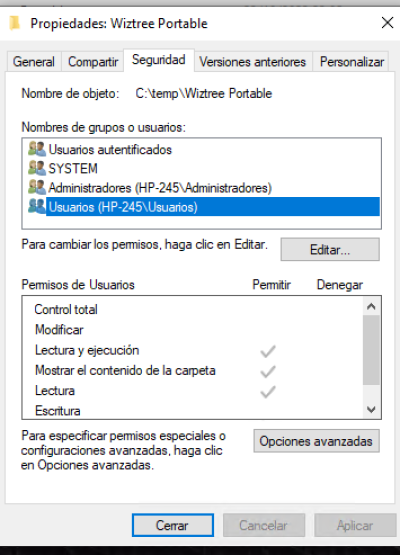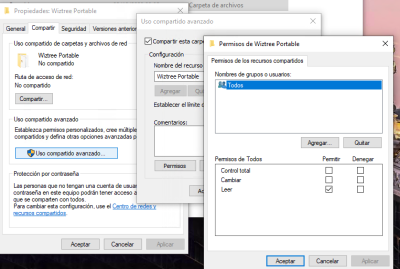Los permisos SMB y los permisos NTFS son dos tipos diferentes de permisos que se pueden configurar en una carpeta compartida en Windows. Los permisos SMB se configuran en la pestaña “Compartir” y controlan el acceso a la carpeta compartida a través de la red. Los permisos NTFS se configuran en la pestaña “Seguridad” y controlan el acceso a los archivos y carpetas en el sistema de archivos NTFS.
En general, los permisos NTFS son más restrictivos que los permisos SMB. Si un usuario tiene permisos SMB para acceder a una carpeta compartida, pero no tiene permisos NTFS para acceder a los archivos y carpetas dentro de esa carpeta, no podrá acceder a esos archivos y carpetas. Por otro lado, si un usuario tiene permisos NTFS para acceder a los archivos y carpetas dentro de una carpeta, pero no tiene permisos SMB para acceder a la carpeta compartida, no podrá acceder a la carpeta compartida.
Referencias: https://www.tenfold-security.com/en/ntfs-permissions-and-share-permissions-whats-the-difference/
Here is a summary of the web page:
- - NTFS vs. Share Permissions: The page explains the differences between NTFS permissions and share permissions, which are both used to control access to resources in Windows environments¹[1].
- - NTFS Permissions: The page describes how to set and manage NTFS permissions, which apply to both local and network access to files and folders on Windows drives²[2]³[3]. It also lists the most important NTFS permission levels and some best practices to avoid common mistakes⁴[4].
- - Share Permissions: The page describes how to set and manage share permissions, which only apply to network access to shared folders and their subfolders and files⁵[5]. It also explains the limitations and problems of using share permissions alone and why NTFS permissions are more granular and secure.
- - Combining NTFS and Share Permissions: The page provides a rule and an example for mixing NTFS and share permissions, which is that the more restrictive permission takes priority⁶[6]. It also recommends setting share permissions to Full Control for admins and Change for domain users, and using NTFS permissions to control access on file servers.
Source: Conversation with Bing, 1/18/2024


